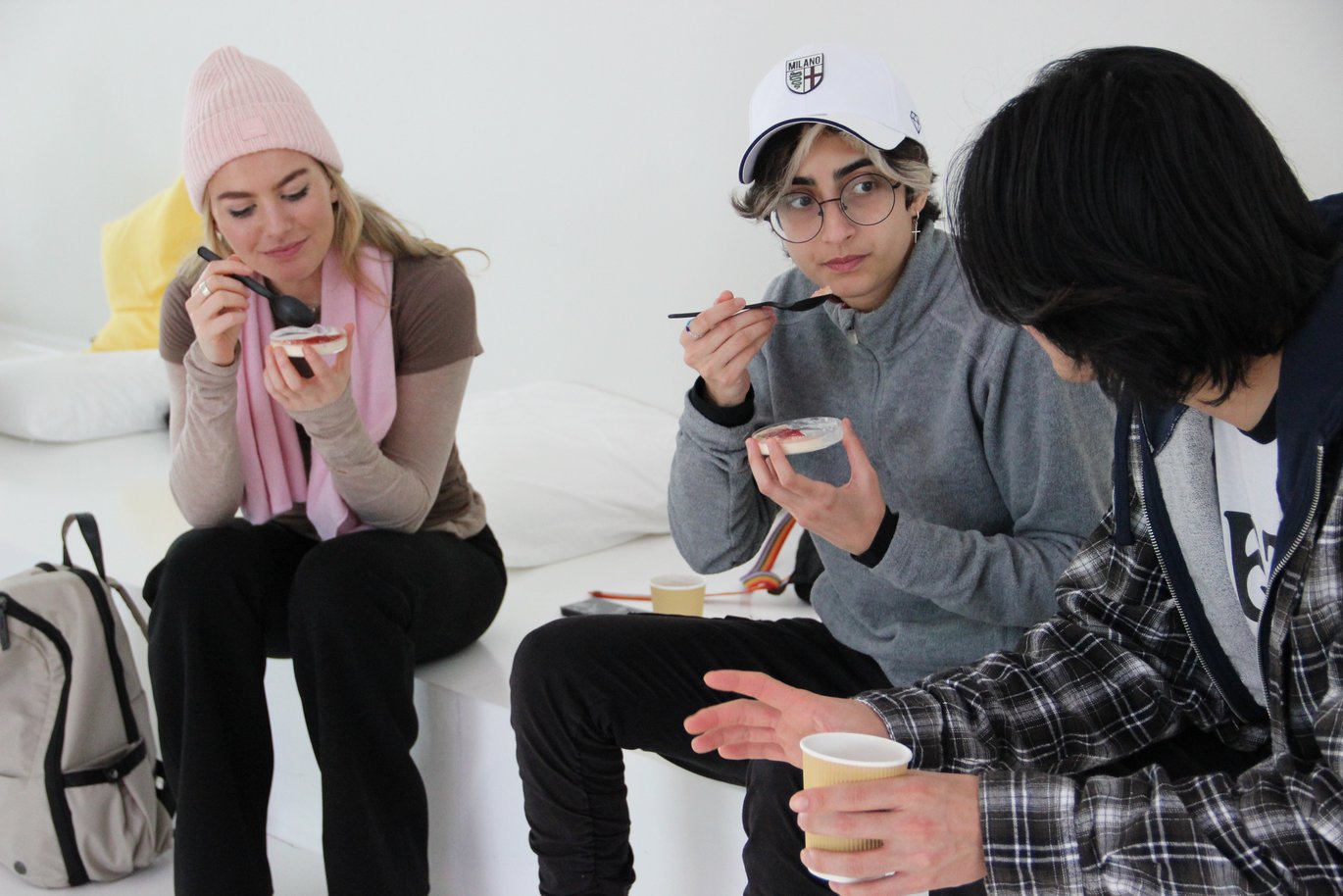Would You Eat a Lab-Grown Steak?
Students, philosophers, anthropologists, artists, and food scientists gathered to discuss the ethical, cultural, environmental, and practical implications of food grown at the cellular level in laboratories. It was an educational day that will set the direction for how the dialogue about the future of food might look.

The day we can grow a piece of meat in a petri dish, indistinguishable from a genuine piece of a cow’s thigh muscle, everything will change. And that day may come sooner than we think, thanks to researchers from CellFood Hub and the Department of Food Science at Aarhus University.
“We are driven by the circular. By growing cell-based food, we can save enormous resources compared to traditional livestock production and simultaneously recycle waste from existing agricultural processes. For example, blood from slaughtered animals, full of valuable nutrients, can be used in production instead of being wasted. It’s a circular process. That’s why we do it,” says Margrethe Therkildsen.
She is an agronomist and assistant professor at the Department of Food Science at Aarhus University, and as a researcher of meat production and quality, she is helping to develop lab-grown meat in the CellFood project.
Cell-based food grown in a laboratory can – and perhaps inevitably will – revolutionize food production while opening a Pandora's box of dilemmas and discussions about ethics, nature, culture, tradition, climate, animal welfare, economy, and sustainability.
Thus, CellFood is proactively taking the first steps to initiate the dialogue about cell-based food.
Technology Opens Dilemmas
A group consisting of philosophers, anthropologists, and artists is mapping people's attitudes towards cell-based food while practicing how to best facilitate dialogue on the subject.
“There is a wide range of emotions people have about this topic. It's enthusiasm, skepticism, fascination, fear. There are many opinions, and we need to uncover them now,” says assistant professor Susanne Højlund, an anthropologist specializing in food culture.
She was one of the initiators behind a workshop for biologists, artists, philosophers, anthropologists, stakeholders from the food industry, and a large group of international students. They met recently to open the dialogue about cell-based food well before the product hits the supermarket shelves.
Philosophers Steen Brock and Kristian-Alberto Cobos presented the assembly with dilemmas around cell-based food. On one hand, the enormous potential to reduce animal suffering and the agricultural sector's climate footprint and strain on nature, and on the other hand, fear of the untested technology and concern over the cultural and spiritual effect of abandoning old agricultural traditions.
Afterward, the researchers and students were put in groups and had to prepare a meal using plant proteins mimicking meat – the lab meat is unfortunately not ready for the kitchen yet – while discussing food culture and emotions.
Meetings Open the Dialogue
It was an interesting meeting between disciplines, approaches and, not least, between people from all over the globe with vastly different cultural backgrounds and feelings about food and food production.
“I had never heard about cell-based food or lab meat before today. But if it can reduce the food industry's impact on nature, then I will definitely buy and eat it instead of regular meat. That's for sure,” says one of the workshop participants, Lara Bisaggio, from Brazil, studying Visual Arts at AU.
Lara Bisaggio's group consisted of students from Australia, Japan, and Belgium, and a Danish researcher – all with vastly different eating habits and attitudes towards food production. As hoped, personal perspectives came into play. The group's views on traditional livestock versus lab-grown meat, for example, were influenced by the fact that Lara Bisaggio comes from Brazil, where the traditional meat production's impact on nature is very tangible.
Here, invaluable nature is cleared every day to make way for grazing areas and for crops used as feed in pig and cattle production in countries like Denmark. Something the younger generation is ready to sacrifice a lot to stop.
“The younger generation is much more open to the new than the rest of us,” says assistant professor Margrethe Therkildsen while cooking with her group of international students.
“It’s such an important reflection to have. Conversations like the ones we have in this workshop don’t have much to do with my daily work with cell-based food. But it opens the mind to hear their thoughts and opinions and discuss them together. Otherwise, we walk around in our own professional or personal bubbles, and that just won’t do,” she says.
